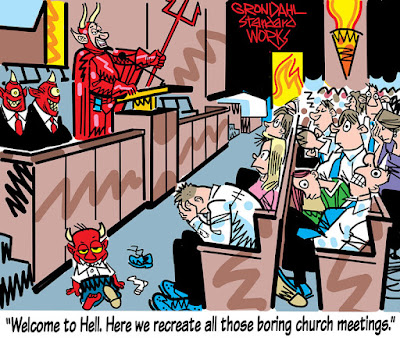Bill Maher’s “Religulous,” a film screed against religion, is very funny and has a lot of truth to it. Religion is pretty screwed up. Maher, who hosts an HBO talk show, grabs at a lot of low-hanging fruit to mock the dysfunctional branches of faith.
Among his targets is a group, called Answers in Genesis, that opine dinosaurs were horses for early man. Other easy targets including a rapping suicide bombing enthusiast, radical Islamics and Jews, and a dimwitted U.S. evangelical senator.
Those are the lazy parts of “Religulous,” where Maher, who is a very intelligent debater, ties his foils into frustrated, rhetorical knots. Of course, he has the advantage — he demands proof. The others rely only on faith. One can’t help but feel that one reason Maher despises faith is that he doesn’t know anyone he would deem as cool who believes.
It would have been interesting had Maher tried to examine faith, and its relationship to theology and religious belief. But “Religulous” won’t tread into the serious. It’s designed to mock those who believe in Christ, virgin births, “magic underwear” or take the Bible seriously … you get the picture. It’s manna for the religion of atheism, of which Maher is a high priest … even if he won’t admit to any “faith.”
Hey Maher! We know there’s a lot of inconsistencies in religion. How about finding some new ones. I’m tired of seeing Ted Haggard in anti-God screeds. How about examining what Camille Paglia points out, that as the world gets more unstable, more of us turn to God. In “Religulous,” Maher is a reverse Glenn Beck without tears, clucking over those “God-lovers.”
Nevertheless, pop atheism, along the lines of Maher, Sam Harris, Christopher Hitchens, Richard Dawkins, has value. There is a lot wrong with religion today. We have one political party whose members are moving away from it, and another whose members have tried to co-opt it into a political party. In Utah, the LDS faith and the Republican Party have what seems to be an eternal marriage. Maher may enrage in “Religulous” (and there are very blasphemous scenes in the film) but he is taking the time to talk with believers and deconstruct their beliefs. That he wins most of the debates underscores a troubling trend with religion — too many believers can’t defend their beliefs.
Maher’s segment on Mormonism, I’m sorry to say, is a real clunker. Instead of confronting the 21st Century LDS Church, he obviously researched old 19th century speeches that are of dubious value today. It provides punch lines for several doctrines, including a very offensive clip involving Mary and God. The only Mormons Maher talks to are a couple who have left the faith, and there’s the requisite “get kicked off property by LDS security” scene.
I can think of dozens of Mormon scholars Maher could have interviewed and matched wits with but again, in a pop atheist screed, interesting debate only happens by accident. Maher plays funny but not too complicated.
In fact, the most interesting parts of “Religulous” are when Maher’s subjects match him in intelligence, or at least common sense. A man who plays Jesus at a cheesy amusement park uses faith to debate on even terms. Even Maher admits he was stumped at one point. There are Christians in a battered truck stop church who ask to pray with Maher. To the host’s credit, he is very respectful of his subjects while interviewing them, although the snarkiness comes out when Maher’s with his crew.
Maher’s conversation with a senior Vatican priest, Father Reginald Foster, is alternately the most rewarding and frustrating part of “Religulous.” Foster, a very candid man, agrees with Maher on many points, including that the authors of the Scriptures can’t be relied on to be in sync with what we know today. Rather than press on and learn something, Maher just basks in the praise of having someone agree with him. How interesting it would have been had he tried to learn why Foster agrees with him and still believes in God. That, apparently, is too much for pop atheism — and Maher — to tackle.
As a close friend said, you can learn more about religion watching “Nacho Libre” than “Religulous.”
Agreed, but “Religulous” is slightly funnier. Watch the trailer here.
-- Doug Gibson
-- Originally published long ago at StandardBlogs

